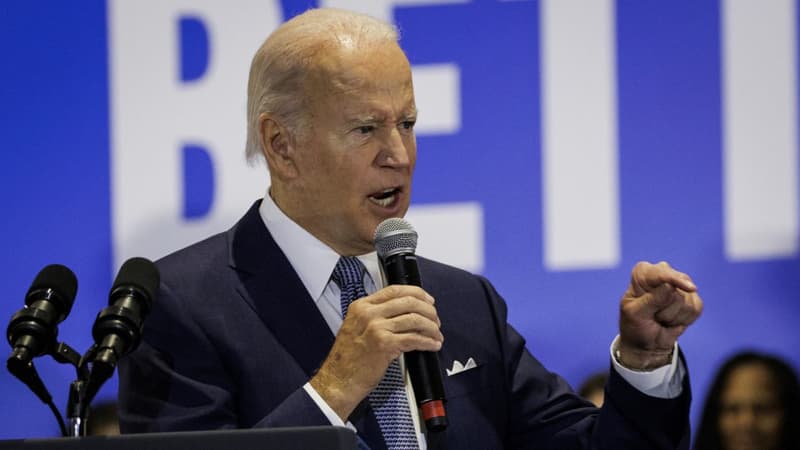First he wanted to turn Saudi Arabia into a “pariah”, then he attempted a rapprochement in July… Joe Biden, angered by Riyadh’s decisions on oil, clearly raised his voice against the kingdom on Tuesday.
He was referring to the recent decision by OPEC+, an oil cartel led by Riyadh, to cut its production quotas, which could cause prices to skyrocket and thus fill the coffers of Russia, which depends on its sales. of hydrocarbons to finance the war in Ukraine.
“Given recent events and OPEC+ decisions, the president believes we should re-evaluate the bilateral relationship with Saudi Arabia,” White House National Security Council spokesman John Kirby told reporters earlier. Joe Biden “is ready to work with Congress to think about what this relationship should be like,” this adviser also assured.
“A purely economic approach” to OPEC +
OPEC+ – the thirteen members of the Organization of the Petroleum Exporting Countries (OPEC) led by Saudi Arabia and its ten partners led by Russia – inflicted a diplomatic snub on Joe Biden, who instead demanded abundant supply. The US president had traveled to Saudi Arabia in July to meet with Crown Prince Mohammed bin Salman, having vowed during his campaign to make the kingdom a “pariah” following the murder of Saudi journalist Jamal Khashoggi.
The Saudi Foreign Minister, Faiçal ben Farhane, explained this Tuesday on the Al-Arabiya channel that the drop in production represented a “purely economic approach adopted unanimously by the member countries” of the organization, with the aim of “maintaining a market for sustainable oil”.
Blocking future arms sales in exchange
The decision of the oil cartel unleashed a wave of indignation among the members of the US Congress and in particular among the parliamentarians of the Democratic party, that of Joe Biden. The powerful head of the Senate Foreign Affairs Committee, Bob Menendez, threatened on Monday to block any future arms sales to Saudi Arabia. Democratic Sen. Richard Blumenthal and House Representative Ro Khanna took him at his word when they introduced the bill Tuesday to end such exports.
The partnership between the United States and Saudi Arabia was sealed after the end of World War II, providing the kingdom with military protection against access to oil for the Americans. This relationship, enameled as a crisis, had been relaunched by former Republican President Donald Trump, with the pharaonic sale of weapons as a result. According to the Stockholm International Peace Research Institute, between 2016 and 2020, Saudi Arabia accounted for 24% of total US arms exports.
A diplomatic failure of Joe Biden
Saudi Arabia has led a military coalition in Yemen since 2015 to fight Houthi rebels, backed by their regional foe Iran. She was attacked by Houthi missile fire. Joe Biden, aware of the fury of human rights activists, had justified his trip to Saudi Arabia out of concern for energy security but also regional security.
But the image of a familiar fist-to-fist greeting exchanged with Mohammed bin Salman hasn’t quite turned against Joe Biden. Since the OPEC+ decision, the US press has been full of murderous editorials about the failure of its “fist-bumping diplomacy”.
Source: BFM TV


